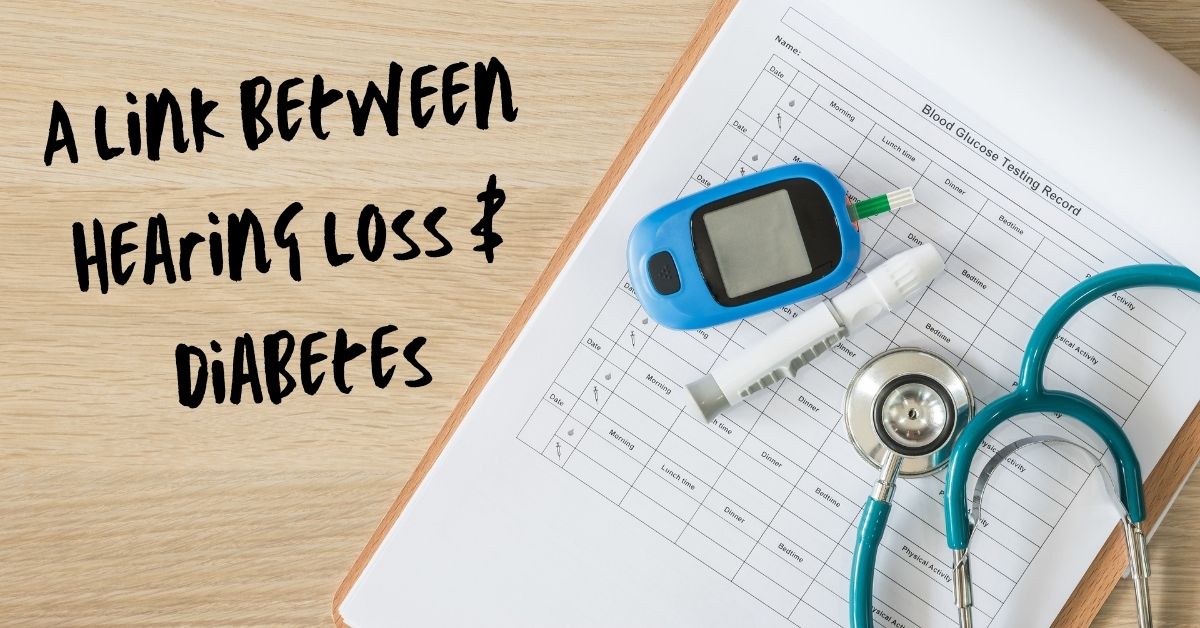Two of America’s most common health issues are diabetes and hearing loss. Over 38 million Americans face mild, moderate and severe hearing impairment, while nearly 35 million live with diabetes. Besides affecting such large percentages of the population, both conditions often affect the same people.
Numerous studies have established a strong link between diabetes and hearing loss. People with diabetes experience hearing loss twice as much as the general population. Prediabetes, a reversible condition where blood sugar levels are elevated, is also linked to increased risk of hearing loss. Although the connection is not fully understood, the health effects of hearing loss and diabetes are most certainly related.
How Diabetes May Affect Hearing
While the link isn’t completely defined, many researchers believe that increased risk of hearing loss is one of the many health repercussions of diabetes. Diabetes is marked by increased blood glucose levels, which has been shown to be detrimental to internal organs like the kidneys and sensory organs like the eyes. High blood glucose may also cause damage to the delicate blood vessels that nourish our auditory system.
Unlike other types of cells, our hearing depends on fragile hair cells that cannot be replaced, repaired or regrown if they are damaged. This is why hearing damage is often irreversible. Permanent hearing loss can be effectively managed with hearing aids and assistive technology, but it cannot be cured. If elevated blood glucose damages the inner ear, that damage is likely to cause permanent changes in hearing ability.
Types of Diabetes
There are two major types of diabetes, simply referred to as “type 1” and “type 2”. Both type 1 and type 2 diabetes involve a genetic component that can make those with a family history of diabetes more susceptible to the disease. Both types of diabetes are irreversible, but can be medically managed and controlled.
Type 1 diabetes or “juvenile diabetes” usually develops in childhood or adolescence when the pancreas fails to produce enough insulin for the body. Type 1 diabetes is far less common than type 2.
Type 2 diabetes most often develops in adulthood and is caused by insulin resistance developing in the body, changing how it processes sugar. Type 2 diabetes can be exacerbated by diet and lifestyle factors.
Prediabetes
Before developing type 2 diabetes, many people move through a symptom-free phase of elevated blood glucose called “prediabetes”. If detected, prediabetes gives a person the opportunity to prevent or delay the onset of type 2 diabetes through lifestyle changes. Those with prediabetes can reverse the condition by making diabetes-aware dietary changes and incorporating more exercise and healthy habits into their daily life.
For people with a family history of diabetes, screening for prediabetes can be especially important. Although prediabetes can be reversed, it can also initiate permanent hearing loss (which cannot be reversed). Studies have shown that patients with prediabetes have a 30% higher rate of hearing loss than those without prediabetes.
Signs of Diabetes
Unlike prediabetes, the development of diabetes is usually marked by significant symptoms. Increased thirst and appetite, frequent urination, blurred vision and fatigue are all common initial signs of both types of diabetes. Unexplained sudden weight loss may also occur, as well as a tingling feeling in the hands or feet.
Diabetes is a serious condition but can be managed. It is important to seek medical attention if the symptoms of diabetes occur. Making changes to your diet and lifestyle can also help minimize the health impact of chronic diabetes.
Signs of Hearing Loss
Hearing loss can occur suddenly, though, most often its onset is gradual. Because hearing loss can worsen slowly over time, it is important to know how to recognize signs your hearing is developing challenges. Early detection is the easiest time to begin treating hearing loss.
- Turning up or maximizing the volume on radios, televisions, computers and other devices can indicate you are having trouble hearing at lower volumes.
- Frequently feeling as though others are mumbling or their speech is muffled may be caused by the presence of hearing loss.
- Avoiding social activities in noisy places may occur when your inability to parse speech and sounds makes socializing unappealing or frustrating.
Noticing any or all of these signs is a good reason to schedule a hearing exam. People with diabetes should also take the preemptive step of regular hearing exams to help them monitor hearing loss that diabetes may cause.
If you are in need of a comprehensive hearing test, look no further! Contact us today to schedule an appointment.

